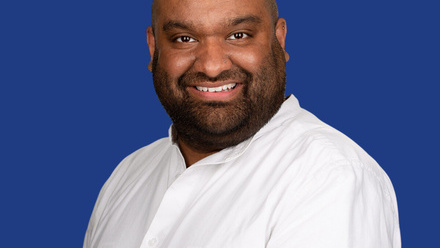AAVantgarde closes $141 million Series B financing to advance its clinical programs in Stargardt sisease and Usher 1B syndrome
AAVantgarde Bio (AAVantgarde), a clinical-stage biotechnology company pioneering therapies for inherited retinal diseases (IRDs), today announced the successful closing of a $141 million (€122.2 million) Series B financing round.
The round was co-led by a new lead, Schroders Capital, as well as existing investors Atlas Venture and Forbion. Other new investors included Amgen Ventures, Athos, CDP Venture Capital, Columbia IMC, Neva SGR, Sixty Degree Capital, XGen Venture, and Willett Advisors. AAVantgarde also received continued strong support from existing investors Longwood Fund and Sofinnova Telethon Fund.
The proceeds from the financing will support:
- Completion of clinical PoC of AAVantgarde’s AAVB-039 CELESTE study for Stargardt disease caused by a mutation in the ABCA4 gene and the completion of the > 100 patient STELLA natural history study.
- Completion of clinical PoC of AAVantgarde’s AAVB-081 LUCE phase 1/2 clinical trial for retinitis pigmentosa (RP) secondary to Usher 1B due to a mutation in the MYO7A gene.
Stargardt disease is the most prevalent macular dystrophy in young people, yet there are currently no approved treatments. AAVantgarde’s AAVB-039 program addresses the root genetic cause of this disease — mutations in the ABCA4 gene — through gene augmentation therapy that delivers the full-length ABCA4 protein, enabling treatment of any patient, regardless of the specific mutation.
Similarly, retinitis pigmentosa (RP) secondary to Usher syndrome 1B is a rare and devastating IRD caused by mutations in the MYO7A gene. Usher 1B causes progressive vision loss combined with congenital deafness, resulting in a double sensory disability. AAVantgarde’s AAVB-081 program targets the root genetic defect by delivering the full-length MYO7A protein by gene augmentation, offering a treatment potentially able to improve the lives of patients affected by this dual impairment.
Dr Natalia Misciattelli, CEO of AAVantgarde, said:
This investment is a strong endorsement of our team, our science, and two clinical IRD programs. Both programs address the root genetic causes of devastating conditions and offer hope of improvement to patients and families living with progressive vision loss.
Harry Raikes, Head of UK Venture Investments at Schroders Capital:
We are proud to support AAVantgarde at this important stage of clinical development. Its innovative platform could enable best-in-class treatments for inherited eye diseases like Usher 1B and Stargardt’s by overcoming key barriers in current AAV technologies and reaching patients who currently have limited treatment options.
Dr Peter Kaiser, Professor of Ophthalmology at the Cleveland Clinic Lerner College of Medicine and Aavantgarde Board member, added:
Inherited Retinal Disorders (IRDs), such as Stargardt disease and RP secondary to Usher 1B, are among the leading causes of blindness in children and young adults worldwide. This financing milestone represents a critical step forward in our ability to bring hope to patients affected by Usher 1B and Stargardt disease, two hereditary retinal disorders with urgent, unmet need and provides the potential to help these underserved patient populations and improve their lives.






